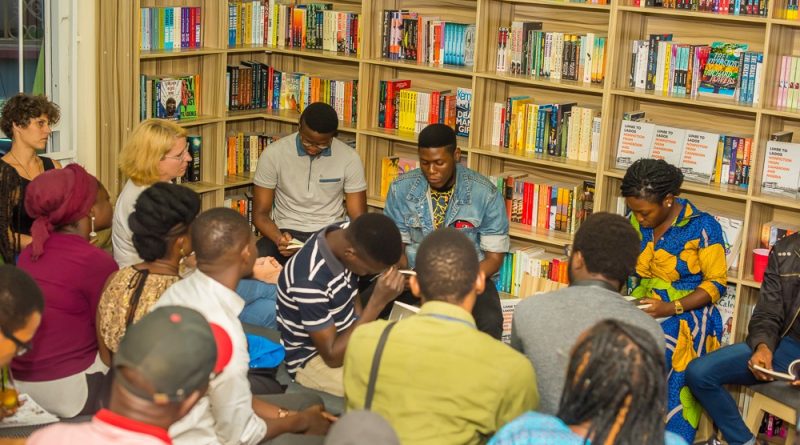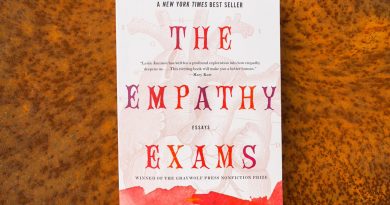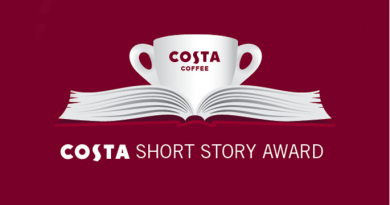10 Lessons from Olakunle Ologunro’s Creative Writing Workshop
You probably know that feeling, when your mail has not received any acceptance letter in a while, or, that feeling, when you’ve never been to any creative writing workshop. I was experiencing that feeling one night, when Olakunle Ologunro’s message just popped into my. The email notified me that I’d been selected to attend a prestigious workshop I’d applied to. I was so excited; I almost couldn’t believe my luck.
Now for all those who haven’t heard of Olakunle Ologunro’s legend, here’s his brief bio:
Olakunle Ologunro is a student of English in the University of Ilorin, Nigeria. He is an alumnus of Farafina Trust Creative Writing Workshop and a winner of the 2017 Kreative Diadem prize for short fiction. He has been shortlisted for different prizes including, the 2018 Africa Book Club contest and the inaugural Gerald Kraak Award. In 2015, he placed second in the Naija Stories contest, and was also long listed for the AMAB–HBF prize. His short story “A Non required Guide to Writing Love Stories” is published in Brittle Paper. Recently, his short story “Pampers” which was anthologized in the South African anthology Queer Africa 2, was republished in the anthology Queer Africa: Selected Stories, which also features stories from 2007 Caine Prize winner, Monica Arac de Nyeko and the late South African author, K. Sello Duiker.
Two days after the email arrived, I found myself rushing to the venue of the workshop. I really wanted to be at the venue before the stipulated resumption time. I will not bore you with detailed stories of everything that went on in the workshop. Rather, I will list out the cogent tips Kunle gave on writing a good story.
Tips on writing a good, memorable story.
- You have to read widely:
The first words of advice I heard Kunle utter was this: reading a lot of books. He said reading many books means reading different authors so as not imbibe one writer’s style. Reading widely also helps the writer stand out with a unique (personalized) style.
- The major approach to writing is what and how:
Ask yourself, what do I want to write, then, how do I write it? When you know what to write, you will then determine your readers because whatever you want to write, has probably been written before. Your job is to write the story from such a unique angle that the story takes on a fresh and unique perspective.
- Defamiliarisation:
Throughout the workshop, defamiliarization was the most examined technique. The students learned the most important aspects of style.
I will explain. Defamiliarisation means making the common things uncommon. This means presenting a common object or experience in a unique way, so that readers can have a completely new experience of it.
At the workshop, Kunle explained how this can be achieved. He said one can do this by symbolizing the whole story with an object or something that happened or time or event or anything. He gave us Lesley Nneka Arimah’s The Future Looks Good as an example. In Lesley’s story, the story begins with Ezinma trying to open a door and while trying to open the door, everything in the story happens.
Click to read more stories by 2019 Caine Prize Winner, Lesley Nneka Arimah
- Catching the attention of the reader:
In every story, use significant details to observe characters, events and things. This will help to draw the reader into the story. Your goal as a writer is to entice your reader enough to you’re your story to the end. Your opening word, line, sentence or paragraph should be catchy to the extent that readers would want to finish the story. Make them eager to know how it ends. Make the reader curious. Avoid clichés or stereotypes.
- Show, don’t tell:
Show us the story, don’t tell us the story. In showing, you describe what a character or event looks like. If a character is angry, show us by telling us may be he flings his clothes or throws something out. “Don’t just tell us he is angry, show us,” Kunle said. However, don’t over show and don’t under show. i.e don’t over describe. Just describe enough. Let your description be accurate.
- Winging is not a very good idea:
Winging means telling a story somehow as you perceive it should be. Olakunle gave us an instance of a writer who wants to write about being a slut and mingles with sluts so as to know their language and reactions. Write what you know.
- Sentence Structure:
Make use of shorter sentences if you want to describe a sudden event or an action. It heightens the emotion of the readers. Try to be simplify your senses. Avoid using “big” words. However if it works for you, don’t hesitate to use it, Kunle advised.
- Kill your darlings:
Don’t be afraid to cut out unnecessary details even when you love them. You can save them in a separate file and document for future use.
- Writing Non-fiction:
In writing non-fiction, Olakunle begins with Teju Cole’s quote that says “A good fiction story should be like non-fiction.”
Then he went further to explain the quote in the following three points.
- One, go where it hurts.
- Two, use your story to relate to the collective.
- Three, don’t be afraid to be vulnerable.
Tips For Starting Your Novel: 8 Lessons From The Aké Art And Book Festival Writing Workshop.
- Closing a story:
Have a sense of the end from the beginning. Don’t start if you don’t know how to end. Close your story by tying up loose ends. Close your story in a way that makes the reader heave a sigh.
At the end of the workshop, we read out the stories he’d required us to write. I want you to consider writing it as well.
“Write about yourself from the perspective of your mother”.
We all took pictures with Olakunle Ologunro. And he promised to be available whenever we needed his help and advice. I also took a selfie with Ope Adetayo. Ope was the friend who introduced me to the workshop.
About the Author:
Ahmad Adedimeji Amobi is a student of English and Literary Studies at the University of Ilorin. His works have appeared or are forthcoming on Kalahari Review, African Writer, Agbowo, LitroUK, Tuck magazine and others. He was shortlisted for the League of Wordsmiths, 2018.
You might also be interested in: Resonance: A Personal Essay on the 2018 Purple Hibiscus Trust Creative Writing Workshop





Pingback: Phoenix Quill Writing Contest 2020/How To Submit (Prize: N100,000 + Publication) - Creative Writing News
Pingback: The Bodley Head/ FT Essay Prize competition/How To Submit (Prize: £1600) - Creative Writing News
Pingback: TriQuaterly Contest/ How To Apply (Prize: Honoria + Publication) - Creative Writing News
Pingback: TriQuaterly Contest/ How To Apply (Prize: Honoria + Publication) – Live News 2 Go Creativity
Pingback: Book Recommendation : Get Set, March by Ben Peter - Creative Writing News